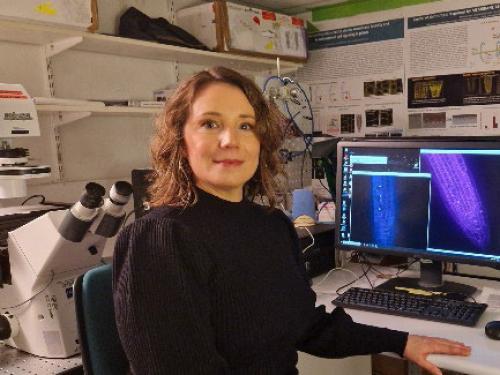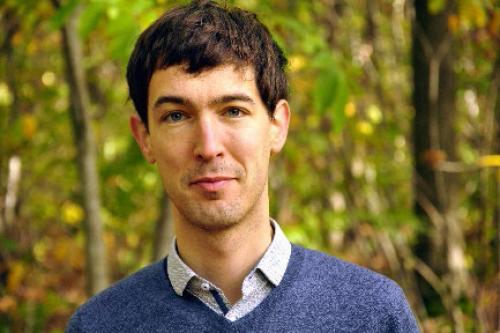The European Research Council (ERC) has just announced the list of recipients of its ‘Consolidator’ grants. Among them are two Lyon-based projects led by Marie-Cécile Caillaud and Aurèle Piazza, both members of the ENS de Lyon.
The European Research Council (ERC) has just announced the list of recipients of its ‘Consolidator’ grants, each of which is endowed with an average of €2 million. Lyon area has two projects in biological sciences.
CNRS regional press release, dated 4 December 2024.
COMPASS project: understanding cell division

Marie-Cécile Caillaud, CNRS researcher at the Reproduction and Development of Plants laboratory (RDP, ENS Lyon/CNRS/INRAE).
Marie-Cécile Caillaud's research combines cell biology and biophysics approaches to study the orientation of cell division in plants. Most studies focus on mechanisms intrinsic to the cell to explain the orientation of the division plan. The COMPASS project tests the hypothesis that this orientation depends on signals from neighbouring cells.
COMPASS: How a non-cell autonomous compass orients cell division in plants.
HOMOLOGIC project: repairing DNA breaks

Led by Aurèle Piazza, CNRS researcher at the Cell Biology and Modelling Laboratory (LBMC, ENS Lyon/CNRS).
Aurèle Piazza's research aims at defining the molecular mechanisms of DNA breaks' repair and their integration within large structured and dynamic objects such as chromosomes. To achieve this, he is combining molecular biology, synthetic biology and genomics approaches in the model organism S. cerevisiae (yeast).
HOMOLOGIC: Mechanism of facilitated homology search and the logic of its meiotic regulations
 ERC Consolidator Grants
ERC Consolidator Grants
The ERC Consolidator Grants are awarded to outstanding researchers of any nationality and age, with at least seven and up to twelve years of experience after PhD, and a scientific track record showing great promise. Research must be conducted in a public or private research organisation located in one of the EU Member States or “Associated” Countries. The funding - up to €2 million per grant, plus in some cases an additional €1 million for start-up costs - is provided for up to five years and mostly covers the employment of researchers and other staff to consolidate the grantees' teams.






